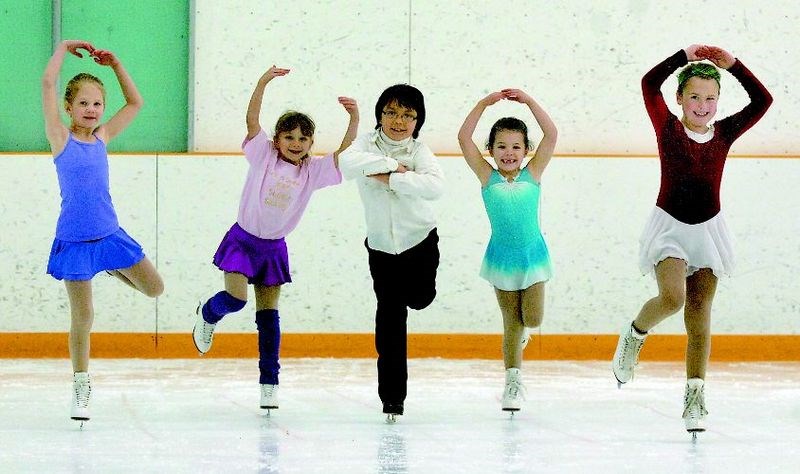In the world of high-stakes figure skating, placings mean everything.
The lustre of gold drives skaters at the highest level to risk disaster and attempt that triple or quad, rather than play it safe. It can mean the difference between a podium finish and disappointment.
But at the grassroots level it takes a different approach to motivate young skaters to perform in front of a panel of judges.
There's nothing like a competition to get kids excited about showing off their skating skills, but for beginners, where they stack up against their peers doesn't really matter. Coaches and parents just want them to enjoy what they're doing out on the ice, and that's prompted a new approach to how they will be judged.
The changes follow recommendations in the federal government's long term athlete development model. For the first two years of competition, skaters in the CanSkate performance program (up to age 10) won't be ranked according to how they compare against other skaters. Instead, they will be judged solely on basic skating skills and how they perform. Those marks will be recorded in their competition report card which determines whether they have achieved gold, silver or bronze levels.
"This movement to a performance program, versus ranking you one through 10 for the younger kids, is a positive move for figure skating," said Prince George Figure Skating Club (PGFSC) coach Nicole Collins.
"It replaces what was called CanSkate solo, which ranked kids against their group, and some kids walked away with a medal and some kids walked away in tears. That's a hard sell to a six-year-old who's traveling three hours down a winter highway for a one-minute skate. This way, they get something out of it."
The new system applies to the PGFSC's junior academy program, which bridges the gap between the CanSkate learn-to-skate program and the group that takes private lessons.
"It's much like a dance recital or a piano competition, they're all given an award," said Collins. "It might not be 'competition' like we're used to seeing but it's moving everything in the right direction to encourage younger kids to stick with it. They're not skating against each other, they're competing against themselves and they're hoping to better their mark from last time.
"The report card is broken down into things like backwards skating, forwards skating, and they're given a grade on those with comments on what to work on. That gives the parents and the coaches concrete evidence of how you did out there."
Report cards will be handed out this weekend in Williams Lake, site of the two-day Cariboots 'n' Blades competition. It's the second regional event under the new competition format and Collins says her skaters can't wait.
"After we went to regionals a lot of the new competitors kind of got the bug and started asking when the next one was," said Collins. "It's exciting that a lot of the newer kids that sometimes don't like (the competitive) aspect of it because they're so little and don't know what to expect -- they had such a good experience in Quesnel (in December).
"When they have a positive experience it helps everybody out because then it's not so hard to encourage kids to do stuff. We have so many little kids that want to get out there and do it again."
A total of 23 PGFSC athletes are in action this weekend in Williams Lake. That list includes Ally Norum, Jessie Drover, Jayna Mason, Erin Brown, Myles Labatch-Patrick, Emma McCarville, Holly Burke, Joy Kamau, Sierra Petrovic, Marissa McCarville, Christina Turnquist, Shivani Banotra, Mary Chidiac, Olivia Jenaway, Katrina Rosche, Samantha Scott, Shelby Scott, Victoria Johnston, Mackenzie Manuel, Hayley Jakubowski, Hailea Hilton, Chelsea Akerley, and Tianna Spoletini.
The meet is a tuneup for the Pacific StarSkate championships in Cranbrook in March 18-20.



